Iran is not just a place. Iran exists wherever Iranians talk and care about Iran. Naturally the Iranian diaspora around the world is an energetic amalgam of cultures, religions and political dispositions. But they are all Iranian, definitely and eternally, however many years they have been away from their homeland.
Three Iranian human rights figures, the lawyer Payam Akhavan, a Baha'i who lives in Montreal and London; Siavosh Derakhti, a Muslim social activist who lives in Malmö, Sweden; and Sharon Nazarian, the Anti-Defamation League’s Vice President of International Affairs, who is Jewish and lives in Los Angeles, embody this spirit. Akhavan's and Nazarian's parents left Iran in the 1970s – Akhavan's to Canada, and Nazarian's to the US – to escape the persecution foreshadowed by the Islamic Revolution. Derakhti's family left Iran after it was exhausted by war with Iraq. And yet each of them is distinctly Iranian in their concern and love for Iran.
Each of these activists has also come to broaden what it means to be Iranian. Akhavan, Derakhti and Nazarian found their way onto paths that led them to Bosnia and Rwanda, to Auschwitz, to Rohingya refugee camps and to the offices of the far-right Hungarian government. These journeys gave the activists, who are among the foremost in their respective fields, a glimpse of what Iran itself needs in order to find a future beyond repression and human rights abuses.
A touchstone of Iranian culture is its ancient, deep-rooted respect for human rights. Cyrus the Great, the Achaemenid king of Persia, old Iran, in the 6th century BCE, is remembered today for freeing Jews who were exiled to Babylon and allowing them to return to Jerusalem after his conquest of Mesopotamia. This humanitarian act was even engraved on a document, the Cyrus Cylinder, which is popularly thought of as the world's first charter of human rights.
Hundreds of generations have passed since an Iranian leader has demonstrated such principles to the rest of humanity. And if Iran exists wherever Iranians talk about or care about Iran, what happens when they care about the rest of the world?
Payam Akhavan, who today lives between Montreal, Canada and London, UK, is an international human rights lawyer and professor at McGill University. He studied at Osgoode Hall Law School in Toronto and Harvard Law School, and had just finished his training when, in the 1990s, then-Yugoslavia fell into ethnic wars stoked by nationalist warlords. He joined a UN mission to Bosnia in 1992, instigating a process that would culminate in the landmark creation of an International Criminal Tribunal to prosecute war crimes. Akhavan's experience later took him to Rwanda, and most recently, he has represented the Rohingya people in a genocide case brought against Myanmar at the International Criminal Court.
Akhavan says human rights chose him rather than the other way around, partly because of a traumatic experience he had as a teenager. A Baha'i contemporary of his, Mona Mahmudnizhad, who was his age but whose family had remained in Iran after his had left, was hanged by the Islamic authorities in 1983 when she was just 17 years old. This harrowing moment was the beginning of Akhavan's quest for justice for victims of human rights violations all around the world.
Lawyer’s Childhood Experience ‘Shook Me to the Core’
"My parents told me that we were going to this place called Canada," says Payam Akhavan, who was born in Iran in 1966. "I had no idea where Canada was or why we had to leave."
His life in Iran was "perfect", he says, with friends, aunts and uncles, favorite toys and even a pet cat – and all he knew of Canada was that it was halfway around the world and apparently everyone lived in igloos.
Now an international human rights lawyer, Akhavan says that as he grew older, he began to appreciate how fortunate his family had been to have left Iran. His family was part of the Baha'i community, which is thought to be one of Iran's largest non-Muslim religious minorities. Since the faith emerged in the 1840s its members have been the target of hate speech and violence by members of the Shia Muslim clergy. In the mid-1970s, as the Islamic Revolution was gathering forces and the revolutionary leader Ayatollah Ruhollah Khomeini attacked Baha’is in his speeches, Akhavan's parents feared a deterioration of the situation and moved to Canada.
The move was prescient. After the revolution in 1979, more than 200 Baha'is were executed by the new Islamic authorities. One of them was Mona Mahmudnizhad, a young Baha'i woman who lived in Shiraz.
"Mona was... highly idealistic," Akhavan says. "She volunteered her time with the local orphanage in Shiraz, she had great ambitions to be of service to humanity. But there wasn't just the compassionate side to Mona. She was also courageous. One day in high school, she was asked to write an essay. She wrote about freedom of conscience and belief, where she criticized the hypocrisy of the leaders of the Islamic Republic of Iran for persecuting her for her beliefs. Sometime later, the Revolutionary Guards raided her home. They arrested her and her father. In prison, they were both subjected to torture and interrogation."
The arrests took place in October 1982, and Mona’s father Yad’u’llah was executed in March. Mona herself, the youngest of a group of nine condemned Baha'i women, was hanged on 18 June 1983, at the age of just 17. The authorities offered Mona the chance to live if she recanted her faith in favor of the regime’s religious ideology – an option she rejected.
"That shook me to the core," Akhavan says. "We were of the same age in the same community. The only thing that divided us was that my family left for Canada and hers remained behind."
The moment, Akhavan says, showed him that "you have to stand for your beliefs, and sometimes you have to pay a price. And if Mona paid with her life, then what would my freedom be worth in Canada if it was wasted on selfish mediocrity?"
Akhavan’s sense of loss drove him to pursue a career in human rights: to take up the causes of persecuted minorities and victims of war crimes around the world. He completed his undergraduate law degree at Osgoode Hall Law School in Toronto in 1989, and his postgraduate studies at Harvard Law School a year later. In 2001, he completed his doctoral thesis at Harvard.
Akhavan also became an activist during his university years. Amnesty International campaigns, which Akhavan took part in as a student, gave him his first experiences of letter-writing drives and similar activities. "These were the early beginnings of trying to understand that the start of every journey to justice is simply speaking truth to power," he says.
But he had yet to anticipate the path he would take after his studies. "It was more an act of faith rather than a specific career. I always say I didn't choose a human rights career, a human rights career chose me."
Akhavan's background as a Baha'i also shaped his worldview and his path into human rights work. "One of the teachings that we were brought up with," he says, "was the oneness of humankind. That humankind is one inextricably interdependent, indivisible body. This idea of being a world citizen was central to my upbringing." But what had been an "abstraction" in childhood became a responsibility in his work. "I always saw myself as responsible for the suffering of others," Akhavan says, "even if they spoke a different language, even if they had a different faith or ethnic identity."
Akhavan had only just graduated when war broke out in Yugoslavia in 1991. The country disintegrated amid infighting between its Serb, Croat and Bosnian nations, manipulated by communists who had styled themselves as ethno-nationalist warlords. He joined a United Nations mission to Bosnia in 1992 to appraise the situation.
"Right in the heart of Europe," Akhavan says, "we saw once again the horrors of ethnic cleansing and genocide. I became entangled very quickly in efforts to achieve some measure of justice."
The UN mission found that the war crimes being perpetrated in the former Yugoslavia were not just instances of "spontaneous combustion", but rather, that there were "pyromaniacs" deliberately fanning the flames of hatred and violence. "It took a great deal of effort, actually, to tear apart a multi-ethnic society like Bosnia," Akhavan adds.
The 1992 mission recommended that the UN establish an international criminal tribunal to prosecute perpetrators in the former Yugoslavia for crimes against humanity and genocide. Many "so-called political realists", Akhavan says, ridiculed the idea at the time, and its achievement was “a long shot at best."
But the circumstances created a window of opportunity. The fact that these victims were Europeans, Akhavan says, moved the UN to approve the establishment of a historic war crimes tribunal: a decision that admittedly betrayed the Eurocentric bias of policymakers and powerful states at the time. The result was the International Criminal Tribunal for the former Yugoslavia, the first war crimes court created by the UN. It was also the first international criminal tribunal since the Nuremberg Trials and the Tokyo tribunal after World War II.
Akhavan was appointed to serve as the first Legal Adviser to the Prosecutor’s Office in the Yugoslavia tribunal. After 1994 he took that experience to a subsequent tribunal created in the aftermath of the hundred-day Rwandan genocide.
"I was in the right place at the right time," Akhavan says, "or in the wrong place at the wrong time, depending on how you look at spending a good decade of your remaining youth, with mass graves and these horrors. But I realized what a profoundly important turning point that was for the historical struggle to achieve global justice: to establish a court which can prosecute leaders for crimes against humanity and genocide."
Akhavan says the experience taught him to be anything but cynical. "We all too often undermine our own power and our own agency," he says. "Speaking truth to power is far more important than we imagine. And it is always the first step in a historical struggle to transform reality. Sometimes you need to make significant sacrifices. I've seen the astonishing resilience of the human spirit, exactly because I've seen the survivors of genocide who have suffered the unspeakable, but they go on living, they go on demanding justice and reclaiming their humanity. We have within us a tremendous capacity to reimagine and transform the world."
One of these survivors was a Rwandan musician, Jean-Paul Samputu, who escaped Rwanda during the genocide. He later returned and discovered that his best friend Vincent had murdered his father – because Vincent was from the majority Hutu group while Jean-Paul's father was from the Tutsi minority.
"Jean-Paul, of course, went into severe depression," Akhavan says. "He became self-destructive, an alcoholic, abused drugs, tried to take his own life, until he had his epiphany. And he healed and transformed himself, and became a highly successful musician. But he was determined to find his friend Vincent. One day he discovered that Vincent had been brought before a community trial in his village. So Jean-Paul travelled back to Rwanda, looked at his former best friend, Vincent, walked up to him, and said to his face, 'I forgive you.' Everyone in the village thought Jean-Paul had lost his mind. But he said: 'I forgive you, for myself, because this anger and this grief is destroying me from within.’"
Justice has "many different dimensions", Akhavan says, and is "not just about punishing the bad guys. It's about healing, it's about reconciliation. It's about creating a new culture." This philosophy also informs his work on justice in Iran. When will that come? “When the time is right,” he says, which “may not be as far off as we may imagine."
Akhavan’s dedication to Iran led him to co-found the Iran Human Rights Documentation Center in 2004. The center works to establish an objective historical record of the country’s human rights situation. “There is an unprecedented awareness in Iran,” he says, “in civil society, about the meaning of an open society, the importance of human rights, of holding powerful leaders accountable." These changes may in part be thanks to new technologies and ways to access information – and also because an educated diaspora is still connected to friends and relatives inside Iran.
"But more than anything," Akhavan concludes, "it's because of 40 years of painful historical experience [since the Islamic Revolution], and sadly, there is nothing like an intimate encounter with totalitarian tyranny to awaken people to understanding the meaning of justice. The Iranian human rights movement was formed in the crucible of extreme suffering and violence. One glimmer of hope is that this suffering can also become a strength, a deeper knowledge and understanding of why we need to create a different society with different values.
"When I look at people like Nasrin Sotoudeh," he says, referring to a prominent human rights lawyer jailed in Iran in January 2011 who had represented opposition activists and politicians after the 2009 post-election protests, "and the great, truly heroic champions that we have in Iran who defy the violence of their oppressors, they are showing us a new potential that is inherent in each and every one of us."
"And there is this poem of Rumi," Akhavan adds, smiling just a bit, "who says that the wound is where the light enters you."
This article was produced by IranWire as part of The Sardari Project: Iran and the Holocaust, a project of Off-Centre Productions and the United States Holocaust Memorial Museum.
Read other articles in this series:
Holocaust Education on an Iranian News Website: Why Not?
Derviš Korkut: A Muslim Scholar Who Risked All to Save Jews and Their Heritage
Iranians Who Fight Hatred Around the World: Siavosh Derakhti
visit the accountability section
In this section of Iran Wire, you can contact the officials and launch your campaign for various problems




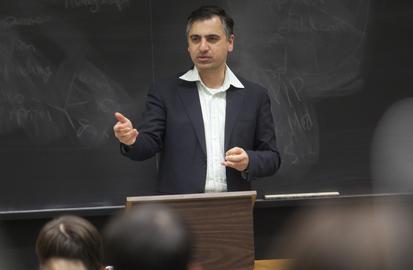
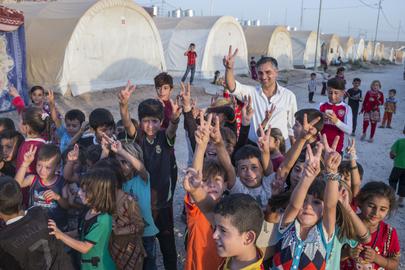

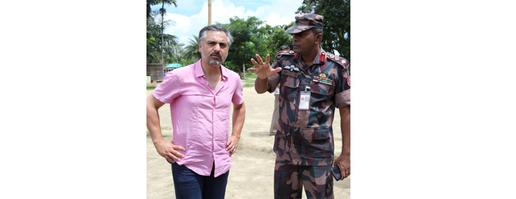
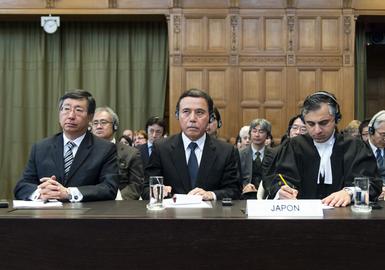
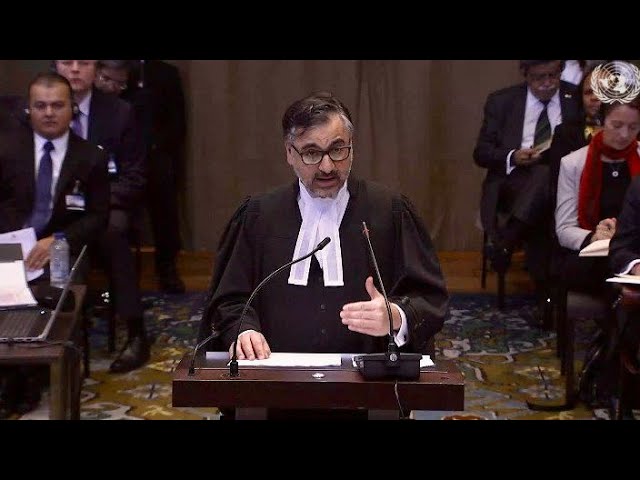




















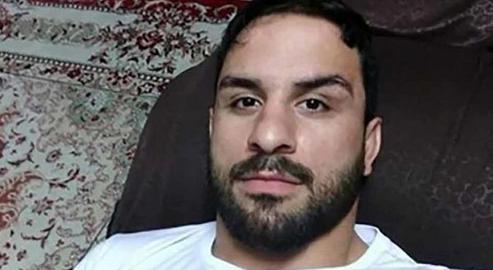
comments